Why Ethiopians believe their new prime
minister is a prophet
Young, democratic and preaching peace, he's the leader the country has been waiting for. But can Abiy Ahmed live up to the hype?
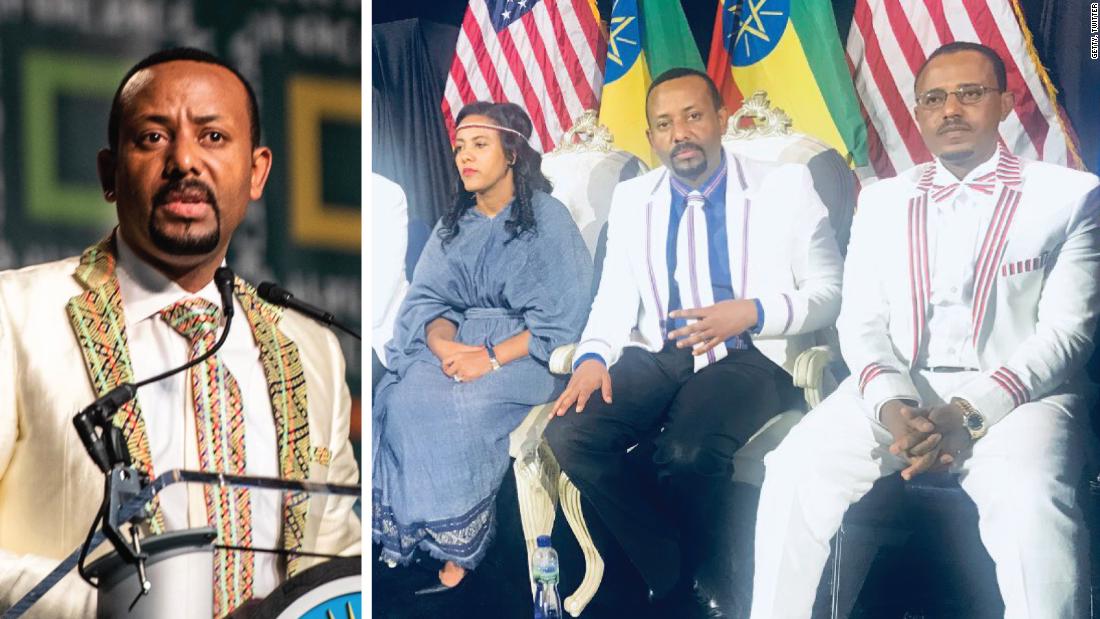
Why Ethiopians believe their new prime
minister is a prophet
Young, democratic and preaching peace, he's the leader the country has been waiting for. But can Abiy Ahmed live up to the hype?
(CNN)At
6 am when Gutama Habro arrived at the Target Arena in Minneapolis,
Minnesota, the line for tickets already snaked around the block. Within
hours, 20,000 fans had packed the venue. "People around me were crying,"
says Gutama, a 28-year-old medical laboratory scientist. "Seeing this
was a dream come true."
Gutama
wasn't at a pop concert. This was the final leg of Ethiopian Prime
Minister Abiy Ahmed's three-city American tour. Held in July, it was the
first time the 42-year-old had visited the more than 251,000
Ethiopians living in the United States, many in self-imposed exile --
fleeing ethnic clashes, violence, and political instability in their
homeland. "The level of hope was something we had not seen since the
election of Barack Obama," says Mohammed Ademo, an activist who fled to
the US in 2002 and founded OPride.com, a news outlet that was blocked for years at home.
Since
taking office on April 2, Africa's youngest head of government has
electrified Ethiopia with a dizzying array of liberal reforms credited
by many with saving the country from civil war. Abiy has freed thousands
of political prisoners, unblocked hundreds of censored websites, ended the 20-year state of war with Eritrea, lifted a state of emergency, and planned to open key economic sectors to private investors, including the state-owned Ethiopian Airlines.
In
the capital city of Addis Ababa, taxi windscreens are plastered with
Abiy stickers, while citizens are changing their Whatsapp and Facebook
profile pictures to pro-Abiy slogans and spending their money on Abiy
T-shirts. Elias Tesfaye, a garment factory owner, says that in the past
six weeks he has sold 20,000 T-shirts bearing Abiy's face, which cost
about 300 birr ($10) each. In June, an estimated four million people attended a rally Abiy gave in the capital's Meskel Square.
Tom Gardner, a British journalist who lives in Addis Ababa, says there is an almost religious fervor to what has been dubbed "Abiymania." "People talk quite openly about seeing him as the son of God or a prophet," he says.
On the verge of civil war
A
prime minister's wardrobe doesn't often attract attention. But the
blazers with purple or green and gold trim that Abiy wore on his US tour
were not just a natty pick: this was traditional Oromo attire.
That's significant. Abiy is Ethiopia's first prime mister from the country's biggest ethnic group, the Oromo, who make up one third of its 100 million people. Ethiopia has more than 90 ethnic groups, and for decades the country's politics have been organized along these divisive lines.
In
1991, the Tigrayan People's Liberation Front (TPLF) toppled the
dictatorship of Mengistu Haile Mariam, whose communist regime had
imposed military rule since 1974. Mengistu had thousands of his political
opponents murdered and ignored a famine that killed one million people
-- a tragedy that found a global spotlight in the 1984 Band Aid charity
record "Feed The World."
The TPLF began as a small band of guerrilla fighters from the Tigray ethnic group, who account for six percent
of Ethiopia's population. As the party prepared to assume power, in
1989, it engineered a coalition with larger ethnic groups, such as the
Oromo and Amhara, to bolster its legitimacy. The catch? "The TPLF formed
the rest of the parties -- they don't have an autonomous existence,"
says Tsedale Lemma, editor-in-chief of the Addis Standard, an independent newspaper.
Until
Abiy, that coalition, the Ethiopian People's Revolutionary Democratic
Front (EPRDF), ruled with an iron fist. Government marginalization of other ethnic groups prompted an exodus of professionals
from the nation and secession cries from the Oromo at home. Government
plans to annex Oromo farmland in order to expand Addis Ababa saw civil unrest explode across Ethiopia in recent years.
As
the country disintegrated into chaos, in February 2018 Prime Minister
Haile Mariam Desalegn did something African leaders rarely do. He quit. A
state of emergency
was called for the second time in 18 months and an internet blackout
followed, including in the capital. "It was devastating for the
economy," says Tsedale.
"Everyone
feared that if Ethiopia didn't get an Oromo leader then the nation
would collapse into civil war," says Abel Wabela, a former engineer for
Ethiopian Airlines, who was imprisoned for blogging about democracy
under the previous administration. "Luckily, we got Abiy."
The selfie prime minister
Abiy
is nothing like those who came before him. He hugs politicians in
public, takes selfies with fans, and doesn't just smile for the cameras,
he beams. His message to Ethiopia's ethnic groups has been: "Take down
the wall, build the bridge."
In
Minnesota, he asked the crowd to "medemer," literally, be added to one
another. "If you want to be the pride of your generation," he said,
"then you must decide that Oromos, Amharas, Wolaytas, Gurages, and
Siltes are all equally Ethiopian." In a country physically carved up
along ethnic lines (many groups were given their own region to govern in
1991, as the country moved to ethnic federalist politics), this is a
revolutionary message.
"He talks
in a language people understand," says Ademo, who joined Abiy's US tour
as a consultant on the American diaspora. Embracing the previous
government's enemies is a classic Abiy move. "People cry because for the
first time they see light at the end of the tunnel. People have finally
found the leader they've been waiting for."
It
helps that Abiy's own identity bridges ethnic groups: his father is a
Muslim Oromo while his mother was a Christian. He is fluent in Oromo,
Amharic, Tigrinya as well as English. In Minnesota, he addressed the
crowd in all three of these Ethiopian languages, as well as some
rehearsed Somali for attendees from Ethiopia's restive eastern region.
His
professional experience is also diverse. In the 1990s, Abiy was a
United Nations peacekeeper in Rwanda, he subsequently headed Ethiopian
cyber security agency INSA and served as minister of science and
technology before shrewdly leaving the embattled central government to
become deputy president of the contentious Oromia region, aligning
himself with that area's struggle.
As Abiymania swells, there is talk of a "brain gain." Ethiopians are being pulled into his orbit, and back to a country that now has the fastest growing economy
in Africa. Ademo returned to Addis last month. Olympic Marathon silver
medalist Feyisa Lilesa plans to do the same in September. He has been
exiled in the US since crossing his arms at the 2016 Rio de Janeiro
Olympic Games in protest against government land grabs and ethnic killings. "If I had gone back, I would have been killed,"
says the runner. Former political prisoner and democracy blogger Atnaf
Berhane says that in Addis "for the first time in six years, I don't
feel like I'm going to be arrested."
Abiy's
own safety might not be so assured. In June, a bomb was detonated at a
rally he gave in Meskel Square, in what was seen as an assassination attempt.
While Tsedale says many of the old guard are "disgruntled" by Abiy's
disrupting of their political hegemony, there is also a pragmatic
"reformed wing" of the TPLF that backs his leadership.
Arkebe
Oqubay, a founding member of the EPRDF, senior figure within the TPLF
and government minister, appears to be in their ranks. "Abiy is young
and he brings vigor," he says. "The whole country should get behind
him."
A cult of personality?
There's
a slightly awkward sticking point in Abiy's success story. While he
presents himself as a liberal champion, in four months in office he
hasn't given an interview. Private media, for a time, stopped being
invited to government events for "reasons we don't understand yet,"
Tsedale says. Consequently, a question mark hangs over much of Abiy's
worldview and biography, other than the fact he is married with three
daughters. On August 25, however, he did hold a three-hour press
conference -- his first -- at which Tsedale says he seemed "relaxed and
convincing."
Having
already visited Egypt, Saudi Arabia, the United Arab Emirates, the US
and Djibouti, Abiy is the region's "most active diplomat by some way,"
Gardner says. Ademo notes that he has taken tough questions from the
public at multiple town halls.
Official news now comes almost exclusively via the Twitter account of Abiy's chief of staff, Fitsum Arega, who posts his boss' achievements in real time. As ethnic violence
in rural areas has claimed lives in recent weeks, Abiy's silence and
Fitsum's cheer leading have jarred. "You have people being lynched in
Shashemene and then he [Fitsum] is tweeting about Abiy visiting the
Jimma Industrial Park. It's ridiculous," says Mula Geta, an Ethiopian
living in Tel Aviv, Israel.
And the government still appears to be turning off the internet during flashes of unrest.
"The
government should be doing more to address such violence and ensure
there are credible investigations into killings," says Maria Burnett,
associate director of the Africa division at Human Rights Watch.
Furthermore, while Abiy has apologized
for the torture that political prisoners endured in jail under previous
governments, there is no sign that offending guards will face charges.
Ahmed
Shide, minister of government communication affairs, did not reply to
CNN's request for comment. Abiy did not reply to multiple CNN requests
for interview.
Perhaps
the biggest concern is that "Abiymania," and the faith it confers, will
blind Ethiopians to the potential flaws of their leader, and weaken the
democratic process. Natasha Ezrow, a professor in the department of
government at Essex University in England, says: "We should be cautious
of leaders who emerge and appear to be a messiah for everybody."
Ethiopia, she adds, has "no institutions for democracy" and is "used to a
strong man." Unless Abiy implements significant checks on his own
power, then it will be hard to avoid a dictatorship, she says.
For now, Ethiopians worldwide are hoping that will not be the case.
"For
a country like Ethiopia, Abiy is one in a million," says Geta. "He
really could be one of the greatest leaders that Africa ever saw."

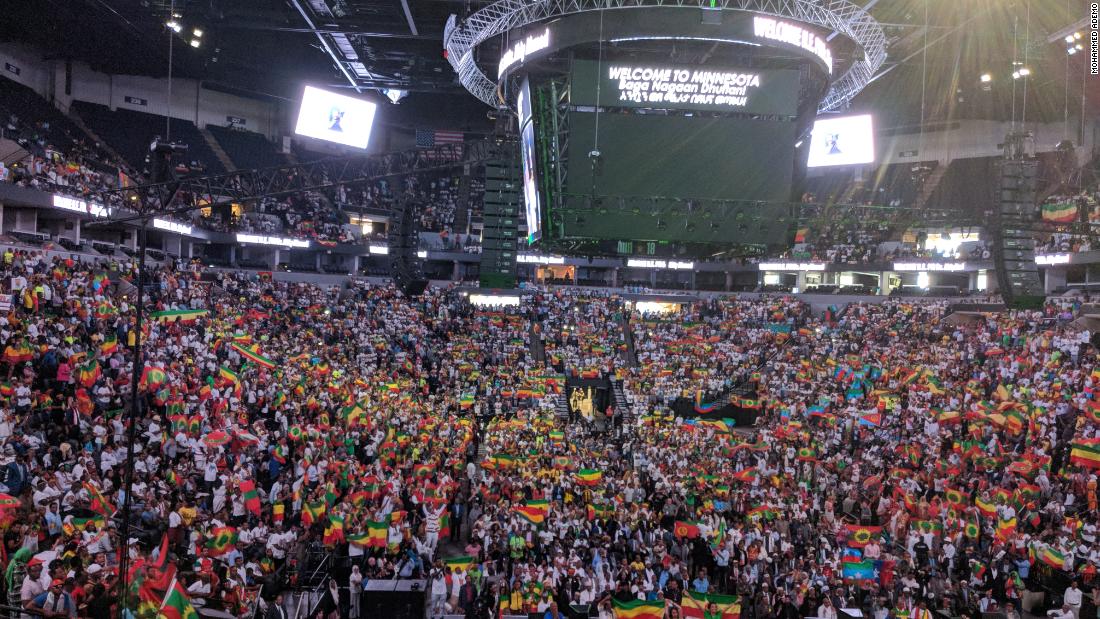

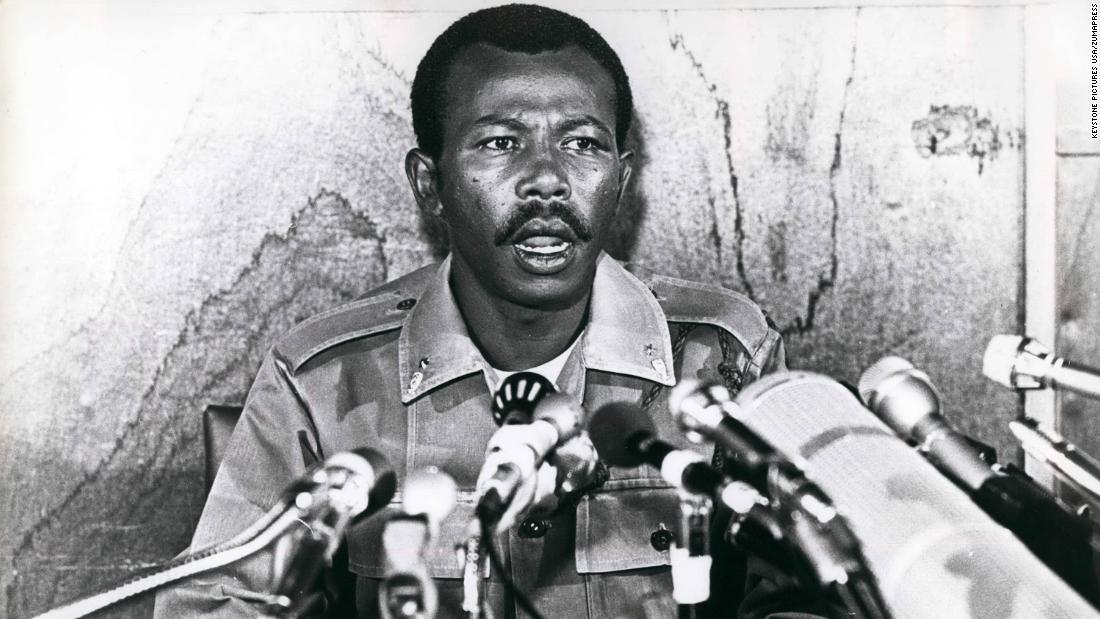
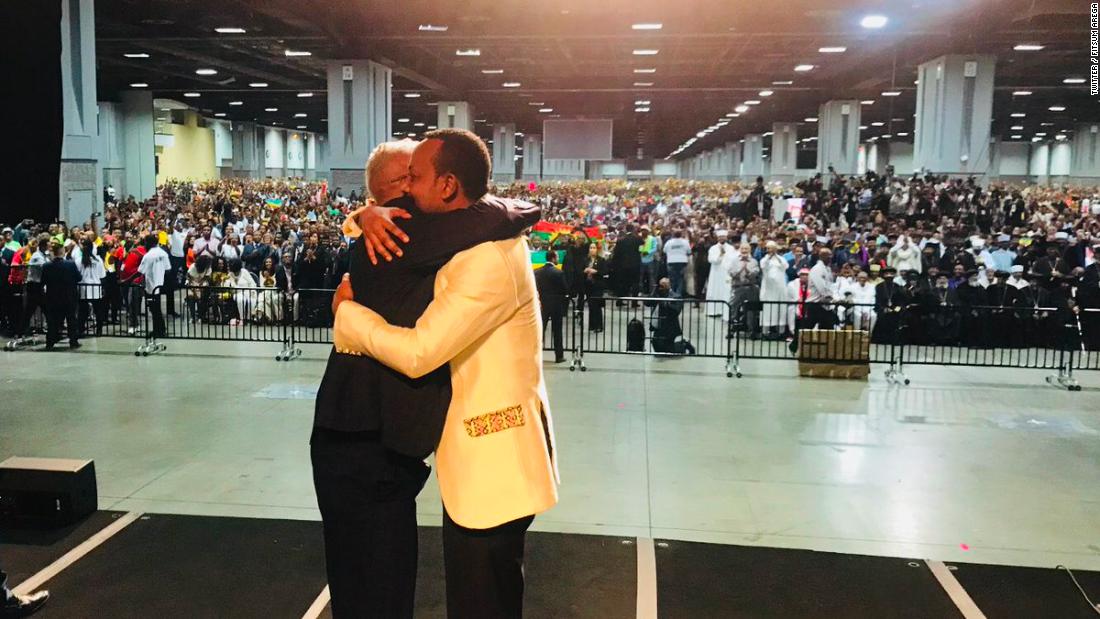
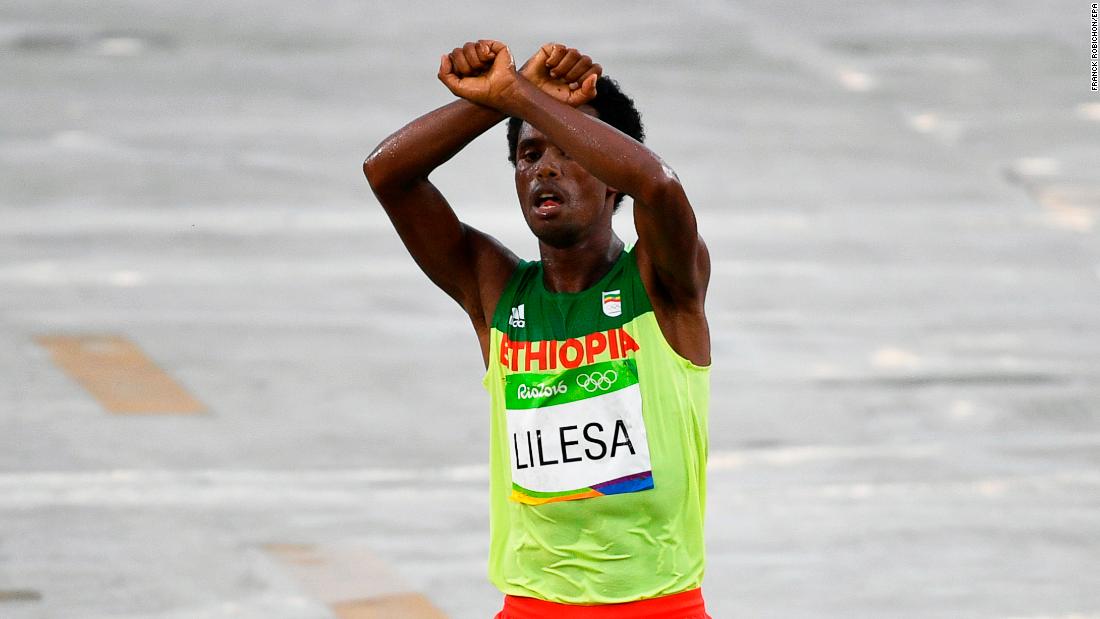
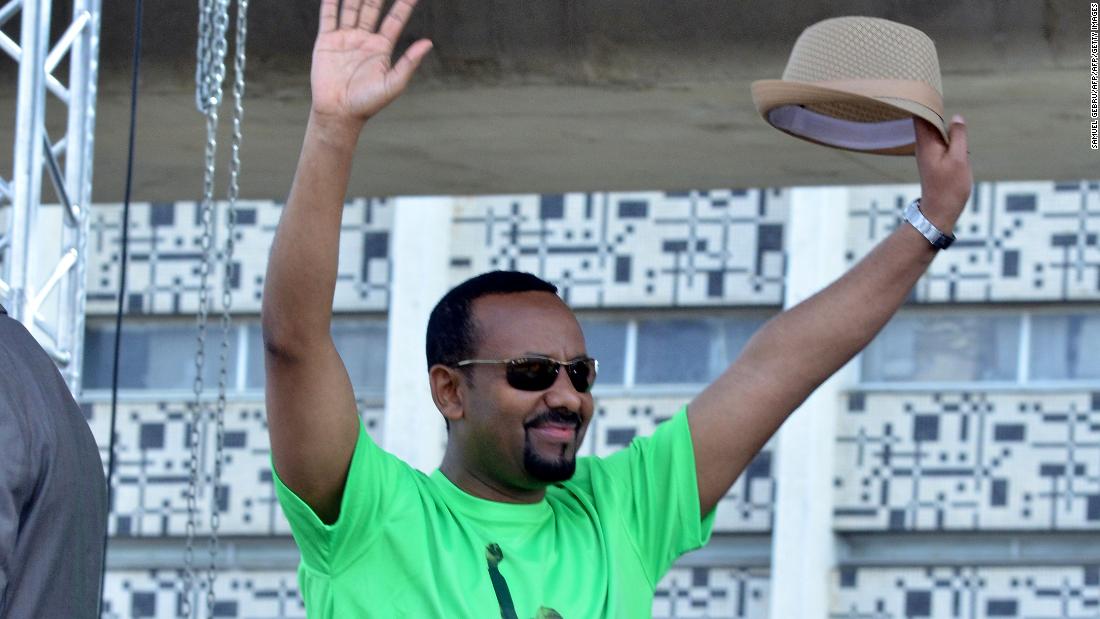
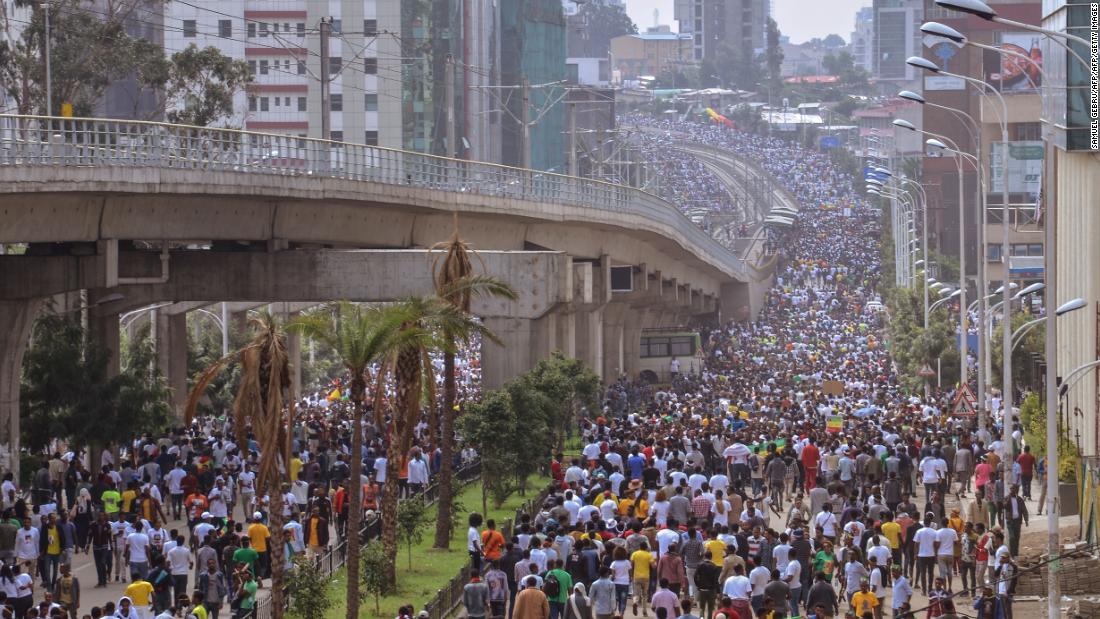






0 Comments
be free to comment
here